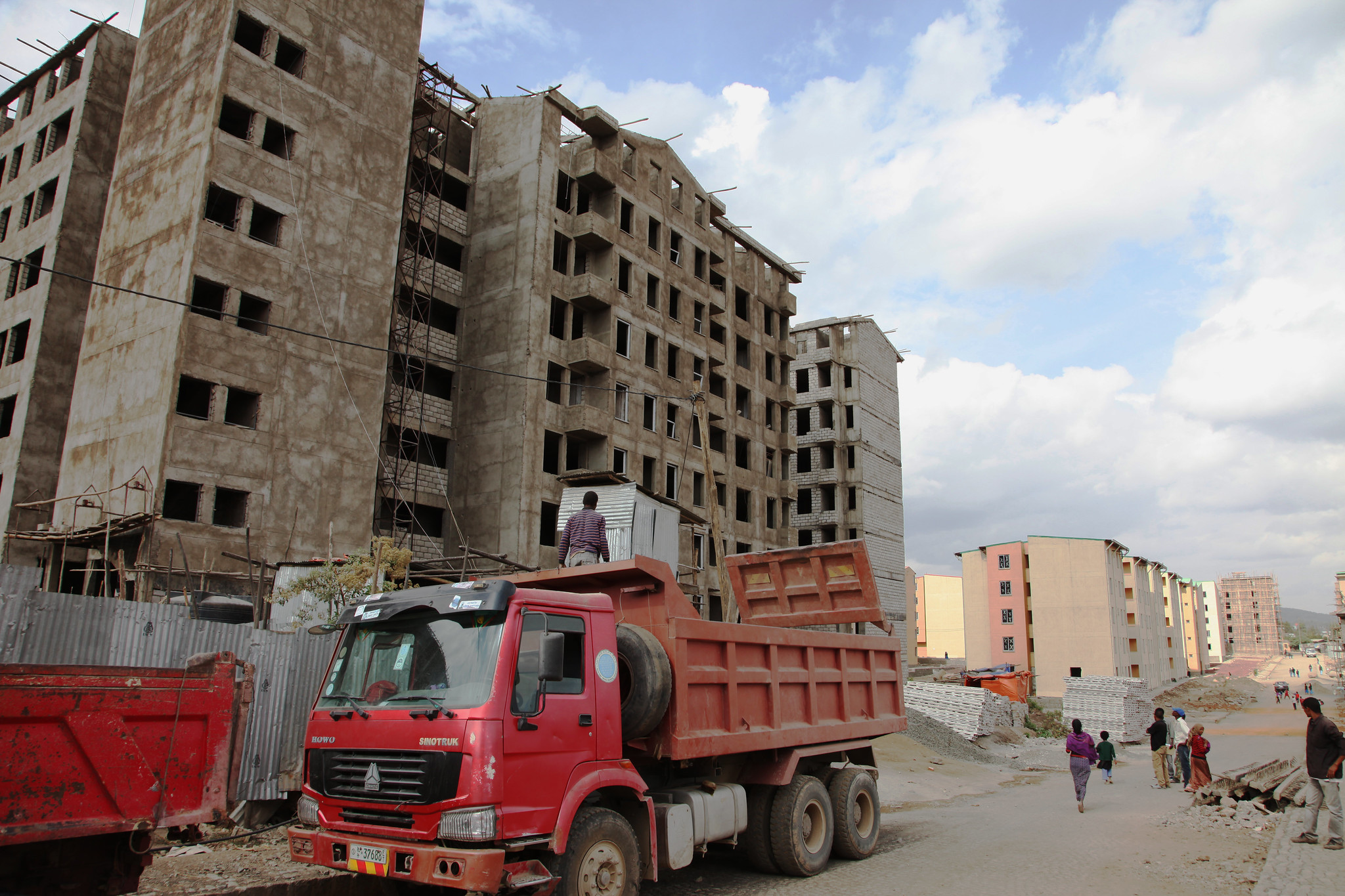Effects of Housing on Educational and Labor Market Outcomes for Children

Building houses in Addis Ababa, Ethiopia. Credit: Gavin Houtheusen/DFID via Flickr
Study Context
As low-income countries rapidly urbanize, a growing share of urban dwellers live in informal and insecure residential arrangements (Marx et al., 2013). Governments have responded with large investments in subsidized housing, yet we know little about their effects, particularly for youth who are affected by these policies. Largely due to data constraints, research into housing policy and “neighborhood effects” has focused on North America and Europe, with few exceptions.
Daniel and a team of Ethiopian colleagues will use random lotteries for government-subsidized condominiums in Addis Ababa, Ethiopia to identify how neighborhoods of residence and household wealth impact medium-run economic and educational outcomes for the children of lottery winning households. The policy in question functionally reallocates families from low-quality, dense housing in the city center to higher-quality housing on the outskirts of the city (Franklin, 2020). However, by virtue of their location on the city’s outskirts, the areas where the condominiums are located have worse labor market access, less developed social networks, and lower quality education and health infrastructure.
Study Design
Through a partnership with the Policy Studies Institute in Ethiopia, the team has obtained the universe of condominium applications and lists of winners, across all lottery rounds. This administrative data will serve as the sampling frame for a household survey of lottery winners and losers. Across a subset of lottery rounds, the team will take a stratified random sample of winning and losing households that will capture the geographically diverse nature of the condominium policy. These surveys will be linked with Social Security and test score administrative data, while recording a number of other measures of children’s economic and social well-being.
The team will use Development Economics Challenge Funds to expand the sample by 900 households, thus reaching their goal of over 3,000 total households.
Results and Policy Lessons
Preliminary results show that in addition to increasing household wealth and neighborhood quality, winning the housing lottery increases active enrollment for children by 8%, secondary school completion rates by 10%, and post-secondary attendance rates by 25%. The results are larger than school expansion programs and about half as large as generous scholarship programs. Preliminary results also show gains in measures of “fluid intelligence” and in soft skills.
If results hold, the study implies housing lotteries can lead to positive network effects on educational attainment and human capital in urban areas.

